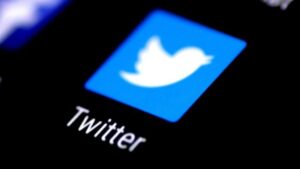
The Constitutionality Of The Twitter Ban In Nigeria – By Freda Odigie

Photo credit: BBC.com
On Friday, the 4th of June 2021, the Nigerian Government announced the indefinite ban of the operations of Twitter in Nigeria. This was a retaliatory attempt by the government after Twitter deleted a controversial post made by President Mohammed Buhari referencing the civil war of 1996 and threatening those he claims causes trouble “with the language they understand”. The government announced the suspension stating that “the persistent use of the platform for activities that are capable of undermining Nigeria’s corporate existence”.
This caused overwhelming outrage from both local and international communities including the Nigerian Bar Association who gave President Buhari an ultimatum to reverse the ban or face legal actions. As if the ban was not enough, the Attorney-General of the federation, Mr. Abubakar Malami further called for the prosecution of those who still found a way to use Twitter. Amusingly, the Federal Government also made the announcement to ban Twitter using the same platform.
The idea of regulating social media has been a priority of this administration for some years, however they have been faced with strong oppositions from Nigerians as it is believed that the intention to regulate social media was not genuine and hypocritical as social media was a very powerful tool used by this government when campaigning in 2015.
Interestingly, Twitter has been a target of this administration for the role it played during the #EndSars protest. As it was one of the major social media giant used for donations and awareness of police brutality. Twitter’s CEO, Jack Dorsey even tweeted his support for the movement and created an emoji exclusive to the protest. However, deleting the tweet of the president was the last straw. The question craving for answers is whether the federal government suspension of Twitter was within the confines of the law.
As was rightly stated by the president of the Nigerian Bar Association, Mr. Olumide Akpata, the ban of Twitter and the “directive to the NCC to immediately commence the process of licensing all OTT and social media operations in Nigeria is a disguised attempt to regulate social media, restrict freedom of speech and shrink civic space.”
The action of the Federal Government is directly a breach of the constitutional provision of the right to freedom of expression at the press as contained in Section 39 of the 1999 Constitution which the federal government is subject to.
Furthermore, the tweet of President Buhari was in violation of twitter’s rules as the NCC provides for a technical framework for the use of social media in Nigeria which has a policy that every social media platform is required to have a network policy, standards and best practices, guidelines and procedures to ensure that risks and myriad of benefits are balanced comparatively in coherent manner. Deleting a tweet likely to go against such standards is appropriate. Therefore, the president was in breach of Twitter policy which nobody should be above. If twitter can delete former president of the United States of America, Donald Trump’s tweet and ban him, why is President Buhari different?
The ban on Twitter is also in violation of the Article 19 of the United Nations Declaration of Human rights which states that “Everyone has the right to freedom of opinion and expression, this right includes freedom to hold opinions without interference and to seek, receive and impart information and ideas through any media and regardless of frontiers”. Also it is in violation of Nations United Nations provision on the right to be online and offline. The United Nations recognizes the impact of human rights on freedom of opinion and expression which was adopted in their human rights council in 2009 which Nigeria is a part of.
In conclusion, Nigeria is a democratic country with a constitution modelled after the United States of America which prioritizes freedom of speech and freedom of the press. Banning the use of Twitter is indirectly contravening the provisions of Section 39 of the 1999 Constitution. Also, Attorney- General Malami criminalizing the use of twitter is highly unethical as there is no provisions of law in Nigeria that supports the criminalization of the use of social media. The utterances of Attorney-General Malami are full of illegalities. The reason given by the minister of information is just a mere excuse. Besides, it was reported by the Guardian News that Nigeria lost approximately N7.5 Billion as a result of the ban thereby dwindling the already unstable economy.
Banning a social media platform that was not in violation of section 45 of the 1999 constitution which states reasons in which fundamental rights can be restricted is undemocratic. Now Twitter may not be perfect but it is what the people wants. Freedom to use the internet space is a fundamental right in Nigeria and it should be kept as such.
Freda Odigie is a Legal Practitioner.
You can contact her on flutterfreda@gmail.com
